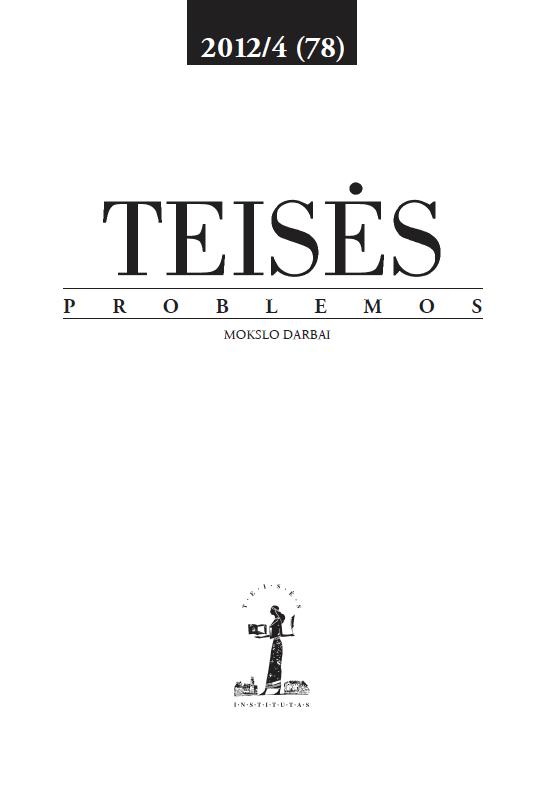Permąstant sankcijas už kontrabandą: proporcingumo problema (I).Proporcingumo principas ir bausmės už kontrabandą
Rethinking System of Sanctions for Trafficing of Goods: the Problem of Proportionality (I). Principle of Proportionality and Criminal Sanctions
Author(s): Skirmantas BikelisSubject(s): Criminal Law
Published by: Lietuvos teisės institutas
Summary/Abstract: The article presents the results of survey of sentences in criminal cases of trafficking of goods which came into force in 2009–2011 in Lithuania. The results were analysed in the light of principle of proportionality. The European Court of Human Rights and Lithuanian Constitutional Court have repeatedly emphasized the importance of the principle of proportionality. However the supreme political bodies of the State had proposed several amendments of the Criminal Code aiming at aggravating criminal liability for economic crimes, also trafficking of goods. The survey presents empiric data which shows that political assumptions that former limits of sanctions in Criminal Code were too mild and could prevent courts from passing effective sentences were speculative. In fact sentences mostly did not exceed average sanctions provided by law for trafficking. However the author came to conclusion that classification of criminal trafficking in goods as serious crime without regard to the fiscal damage which was caused by the offence determines disproportionally severe sanctions in less serious cases of trafficking and also prevents the courts from opportunity to apply some alternatives to criminal liability or apply community based sanctions. Classification of all cases of trafficking as serious offence also infringes consistency of the common system of the offences. The sentencing rule that sets average of sanction as starting point for sentencing is also criticized for making exceptional maximum sanctions relevant for the determination of sanction for ordinary cases where neither aggravating nor mitigating circumstances may be established. The statutory prohibition to impose more than one punishment for an offence is criticized too. It prevents the courts from imposing fines to offenders who are found guilty in gain-orientated crimes if they received sanction of imprisonment or sentenced to probation or any other sanction. Finally the methodology of estimation of the seriousness of trafficking in goods is discussed. It was proposed to take into account the amount of the evaded tax instead of the total value of the goods.
Journal: Teisės problemos
- Issue Year: 2012
- Issue No: 78 (4)
- Page Range: 5-24
- Page Count: 20
- Language: Lithuanian

